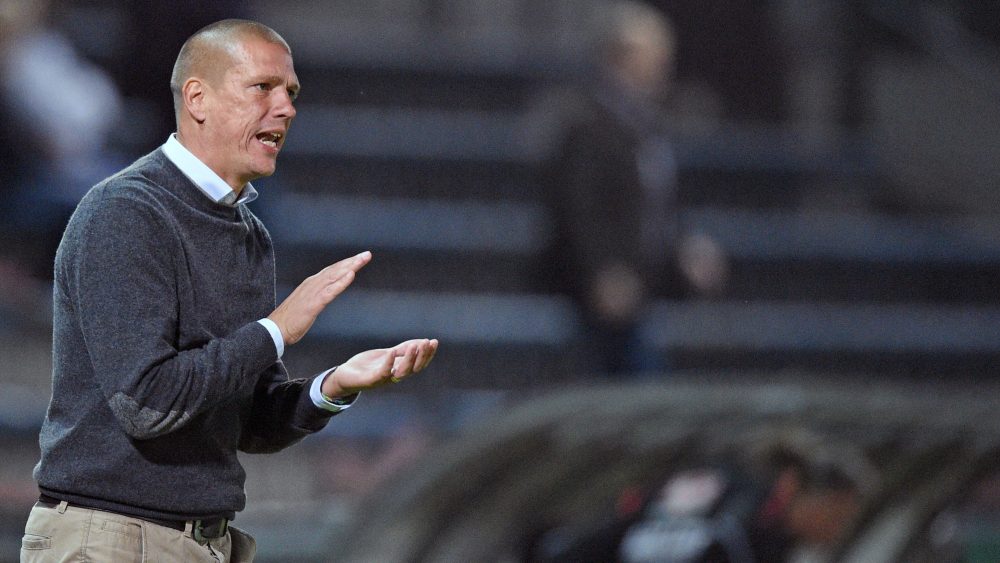Christian Ziege: “Parking the bus has nothing to do with football”
Christian Ziege’s career
In the summer of 1990, Christian Ziege, then 18 years of age, transferred from Berlin to Munich on the Isar river. At FC Bayern he quickly matured into a key player at left back and competed in a total of 185 league games for the red and whites up until 1997. In that time he also became a German international and enjoyed his greatest personal success in 1996 with the European Championship title in the motherland of football.
When the great AC Milan came knocking in 1997, Ziege grabbed the opportunity with both hands and transferred to Italy. Just two years and 39 games later it was off to the UK, where he turned out 29 times for Middlesbrough, 16 times for Liverpool and 47 times for Tottenham. After just a season, he then ended his playing career in Germany with Borussia Mönchengladbach in the summer of 2005.
After his career, Ziege occupied various offices at his last club until 2008, acting among other things as sporting director and assistant coach for The Foals. Afterwards the man born in Berlin coached the German under-18 and under-19 national teams between 2011 and 2014 as well as Unterhaching in the following season. The 72-time German international got his first experience of coaching abroad between 2015 and 2017 with Atlético Baleares and in 2018 in Thailand.
“Examination has to happen constantly”
Miasanrot: Hi Christian, let’s start from the beginning: as an 18-year-old you braved the step from Hertha Zehlendorf’s youth set-up to the great FC Bayern. How can that step be imagined?
Christian Ziege: It was obviously a certain adjustment. From a fairly well-known player in Berlin with a lot of attention to a completely unknown young academy player who has to prove himself first. You’re tested in all possible situations, and that over a long period of time. You have to accept a subordinate role everywhere and obviously they expect respect, so all pretty normal.
Miasanrot: Would you still advise young players to take that step despite of all that?
Christian Ziege: Absolutely. The step to FC Bayern Munich is certainly a very big step, but if you don’t manage to break through there then you certainly still have the chance to get another chance at another Bundesliga side or another good address in Europe. It doesn’t work the other way around: if a young player doesn’t break through at another Bundesliga side, he won’t go to FC Bayern either.
Miasanrot: Berti Vogts once referred to you and your generation in an interview as “affluent young lads”. What could he have meant by that?
Christian Ziege: You’d be better off against Berti Vogts… but in principle generations always change more and more, just as life changes. Older people perhaps often have problems understanding the new generations, but that’s always been the case.
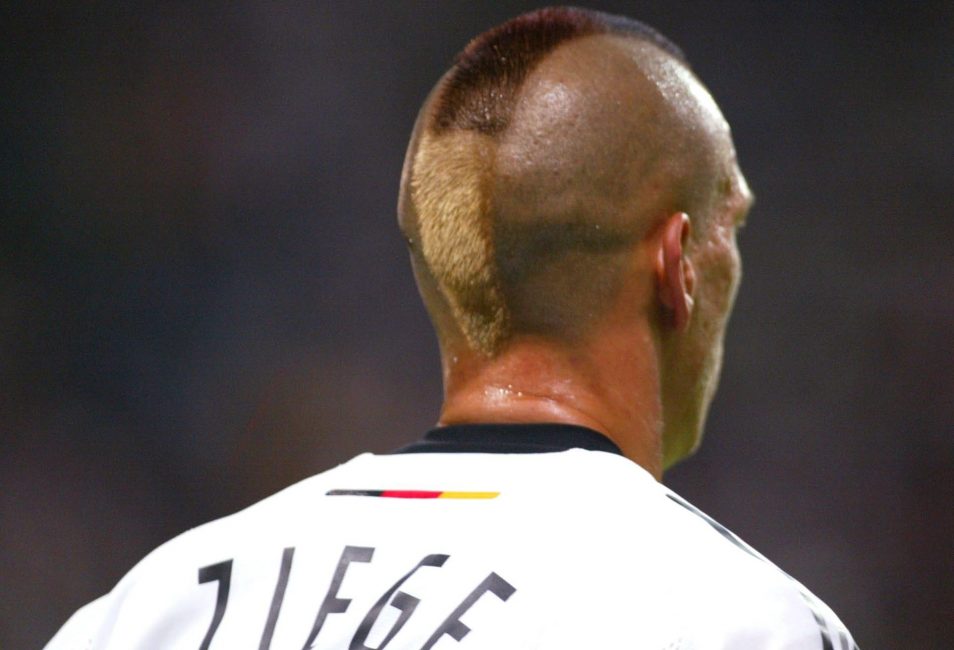
(Image: Gunnar Berning/Bongarts/Getty Images)
Miasanrot: What kind of life-style did you and the other young players cultivate back then?
Christian Ziege: Our life was defined by training. Other than that we obviously killed time with the other young players a lot, mostly in bigger groups. We had a lot of fun.
Miasanrot: Since 2017 the FC Bayern campus has been home to the entire youth department. Lately in addition a change in Bayern’s philosophy has been recognisable: lots of talents are tied down with professional contracts and young players snapped up from all over Germany. How do you currently assess FC Bayern’s youth system?
Christian Ziege: I think FC Bayern is running a good youth system, though only a few make the jump to the senior side, and that’s where you need special quality. Certainly a sufficient number from the Bayern youth make it into the Bundesliga.
Miasanrot: What went right for the DFB in the youth set-up after EURO 2000 and what can FC Bayern learn from that?
Christian Ziege: I think fundamentally it was right to examine everything and to change where necessary. I’m of the opinion that that has to happen constantly though, and not just every five to ten years and that goes for all areas.
“Before everything was smaller and easier to oversee”
Miasanrot: At FC Bayern you experienced the infamous FC Hollywood in the turbulent 90s. How was the club different then from how it’s set up today?
Christian Ziege: It’s become a completely different machinery, there’s a staff member and an overseer for every detail. With us everything was substantially smaller and easier to oversee. I think all areas have been professionalised since then, though whether that all even contributes to improvement I don’t know.
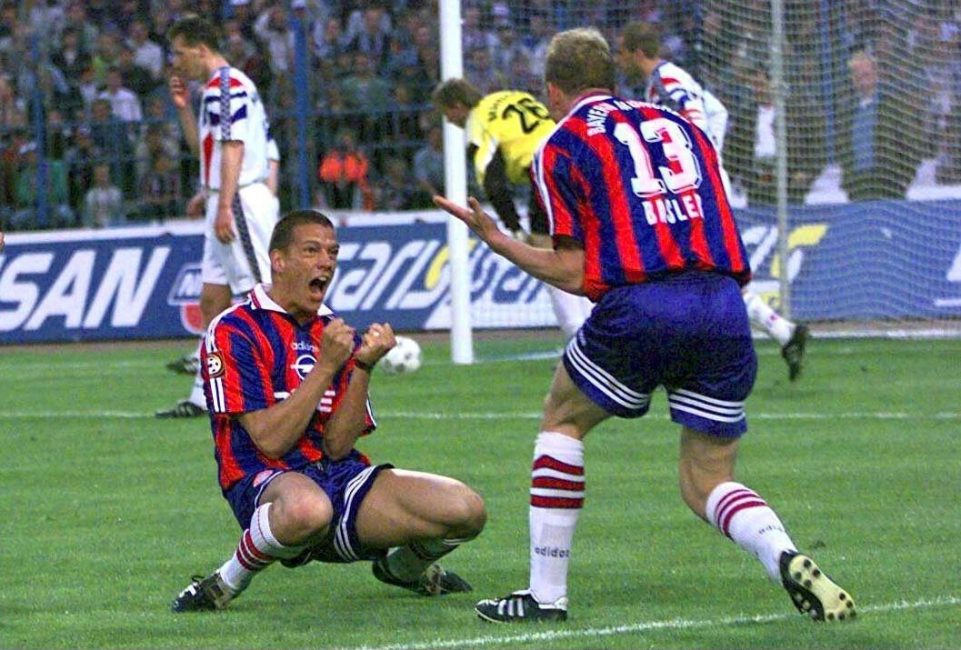
(Image: Marcus Brandt/Bongarts/Getty Images)
Miasanrot: FC Bayern has always been a club that is known for strong personalities in the dressing room and also in the boardroom. What was your relationship like as a player with the club’s towering figures like Hoeneß or Beckenbauer?
Christian Ziege: I always had a good relationship with Franz Beckenbauer and Uli Hoeneß. With the latter all conversations were open, honest and trusting. As a player you could come to him with any topic at any time.
Miasanrot: In comparison with the manager Hoeneß in the 90s, how do you see currently the role of a Hasan Salihamidžić?
Christian Ziege: I think it’s a very hard role with the heavyweights in the background who in the past made the club what it is today. He’ll have to find his position and that’s certainly not so simple.
Miasanrot: At the moment FC Bayern are stumbling through the league. The first big crisis under new coach Kovač has arrived. Was FC Bayern a step too far for Kovač?
Christian Ziege: FC Bayern is always a step further compared to anyone else, whether too far will become apparent. It’ll become apparent precisely whether it’s more of a deficit with the coach or in the squad planning. At the moment it’s not going as planned, but I think for conclusive judgements it’s too early. You’ve also got to consider that for a long time important players, above all the two Frenchmen Coman and Tolisso, have been injured.
“I would have loved to play under Guardiola”
Miasanrot: Let’s get into the topic of tactics a little bit: as a player you directly experienced the adjustment from sweeper to back-four. What changed then for you and the whole team?
Christian Ziege: That certainly wasn’t easy, but I was lucky to have outstanding coaches in Italy who worked almost daily on tactics to tighten the whole thing up.
Miasanrot: How different was the interpretation of your role as left-back in Italy in comparison with Germany?
Christian Ziege: In Germany with the sweeper we had an additional insurance, so a back-three plus two wing-backs. In Italy meanwhile it was a pure back-four. Correspondingly in Germany I had substantially more freedom in attack.
Miasanrot: Was that adjustment hard for you?
Christian Ziege: The adjustment in itself wasn’t hard for me, only in Italy the left-back is responsible for defence first and foremost, at least in my time. As a result my attacking threat was limited somewhat, but looking back that was fair enough too. I would have personally liked it better in a back-three. For my personal, substantially more attacking game that would have suited better.
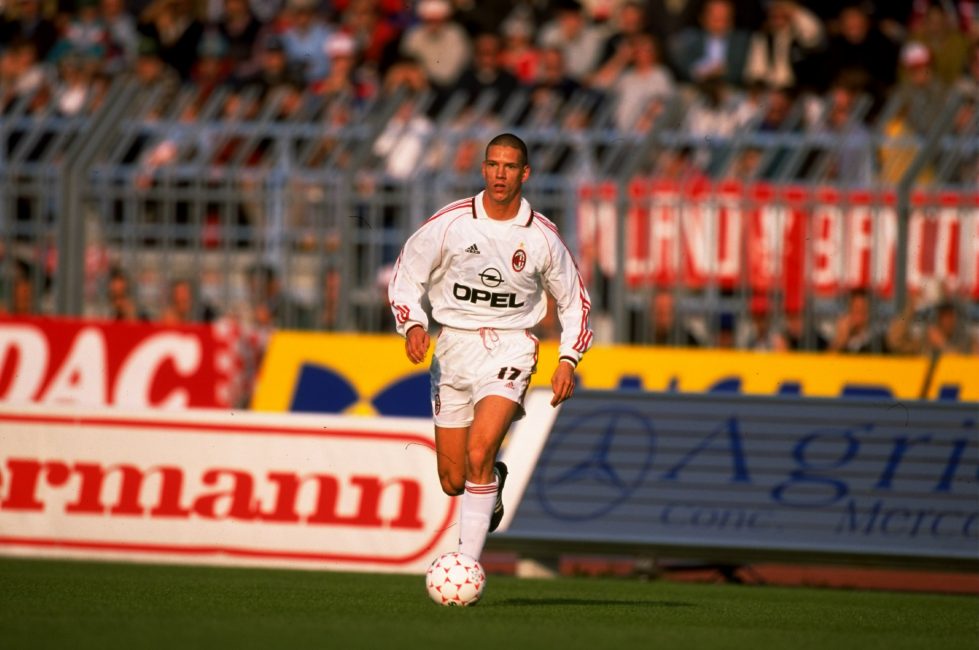
(Image: Allsport UK /Allsport)
Miasanrot: What other tactical development would you have liked to experience?
Christian Ziege: I would have loved to play under Pep Guardiola, that certainly would have been a big step forward developmentally.
Miasanrot: What fascinates you about Guardiola?
Christian Ziege: Guardiola’s teams almost always play an attacking, sensational and successful football. Following those games is a poem. I would have really liked his style of football as a player. For me, only that is true football. Everything else, parking the bus, chasing after the ball for 90 minutes and hoping not to concede, has nothing to do with the term football from my point of view. As young guys none of us went to play on the streets or in clubs to play without the club: the fascination and the fun was and is with the ball.
Miasanrot: Since Jürgen Klopp’s time in office the Bundesliga has stood for deep-sitting teams who carry out strong counter-pressing and can break quickly. Do you think attractive football is being played in the Bundesliga at the moment?
Christian Ziege: Yeah, I think so. There are some teams who offer great football. Here I’m thinking of Dortmund under Favre, Hoffenheim with Nagelsmann or Frankfurt under Hütter. Personally I like Freiburg, where Streich is doing great things with what he has there. On the tactical level, the Bundesliga doesn’t need to hide in an international comparison in any case.
Miasanrot: Why would you like to play in today’s game?
Christian Ziege: To be honest I don’t even know if I’d want that. I was and am satisfied and thankful to have played in the Bundesliga, Serie A and Premier League, and of course 72 times for Germany.
“Training in Italy was the toughest and the longest”
Miasanrot: Then let’s get straight to your career: Milan, Liverpool and Tottenham. Your international career reads like a tryst of European top clubs. What was the reason at the time for your move from Munich to Milan?
Christian Ziege: Quite simply, I wanted to achieve three things in my footballing life. Play at Bayern Munich, turn out for the national team and move to Serie A and I already had that goal in that shape as young as 14 or 15.
Miasanrot: How does one look back on such an international career today
Christian Ziege: It was a big adventure with new experiences. Both on the pitch as well as off it. Being able to play side by side with big stars, in another country with another mentality in fantastic stadiums with top class fans.
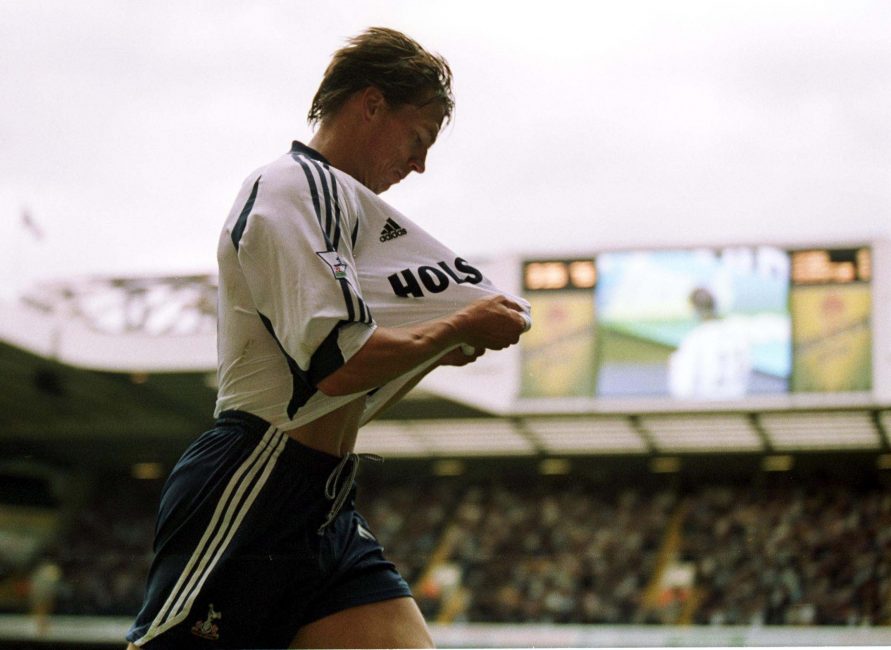
(Image: Clive Mason/ALLSPORT)
Miasanrot: Can you please compare for us the level of professionalism between England, Italy and Germany in the late 90s and early 2000s?
Christian Ziege: The methods were different. In Italy training was the toughest and the longest, above all in the tactical and strength areas. In England it depended a little bit on whether you had an English coach or a foreigner. The English coaches were at least in my time satisfied with less training sessions. But in terms of professionalism, there were few differences. The work done was very professional everywhere.
Miasanrot: Looking back, did the style of play in England suit you the best?
Christian Ziege: It was open and honest, but just harder and faster too. Whether it suited me best, I can’t say. It was certainly a lot of fun for me.
Miasanrot: With Liverpool you were in the 2001 UEFA Cup final, but weren’t used. How do you perceive a moment like that as a player?
Miasanrot: Of course the overwhelming feelings there are frustration and pure disappointment. That really hurt. But you have to deal with it. The sun doesn’t shine all the time either, there are days with rain too.
Miasanrot: How can you build yourself back up after an experience like that?
Christian Ziege: The most important thing is not too dwell on it too much. In life we – all of us – have completely different challenges, and sometimes these look too big and insurmountable. Depending on the setback you need a moment, but then you have to try everything to get back up again and to manage to find solutions and changes. That’s not always simple, but can be achieved very often with a lot of conviction and will.
“With the national team a dream came true for me”
Miasanrot: As you’ve already said, you turned out 72 times for Germany. You were there for five big tournaments and became a European champion. How does it feel when you run out for the first time with that badge on your chest?
Christian Ziege: It’s a completely unique agitation, but then pure joy too. A dream came true for me there.
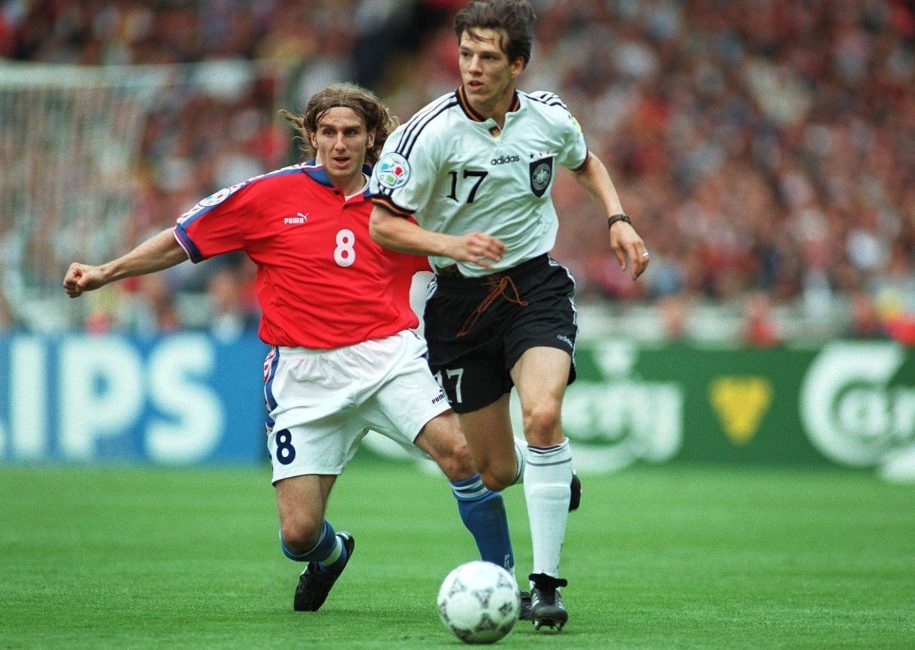
(Image: Mark Sandten/Bongarts/Getty Images)
Miasanrot: How does it feel to win the European Championship in the motherland of football?
Christian Ziege: Not just the fact that you get to play for Germany but also to be in the final of the EUROS and to win is unbelievable and you first realise a few days or weeks later just what you’ve achieved. To have been in a World Cup final as well is something not many have been able to experience. I’m incredibly thankful for that.
Miasanrot: Can a trophy with the national team be compared with a club trophy?
Christian Ziege: Winning a trophy is always something special, however winning a trophy for your country is definitely something unique.
Miasanrot: Like FC Bayern, the German national team is in the middle of a tricky crisis after the World Cup. Where should Jogi Löw start in order to lead the team back to winning ways?
Christian Ziege: I think it’s a completely new situation for him, after all the successful years, but he’ll manage it. The Özil thing also shouldn’t be on the agenda anymore, because the face of the national team has always changed, especially after tournaments.
Miasanrot: Thank you very much, Christian!
Christian Ziege: Pleasure.



